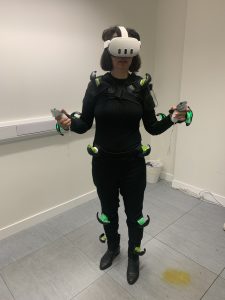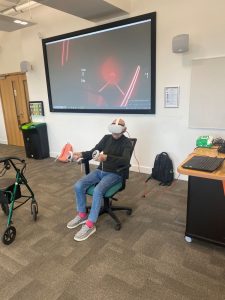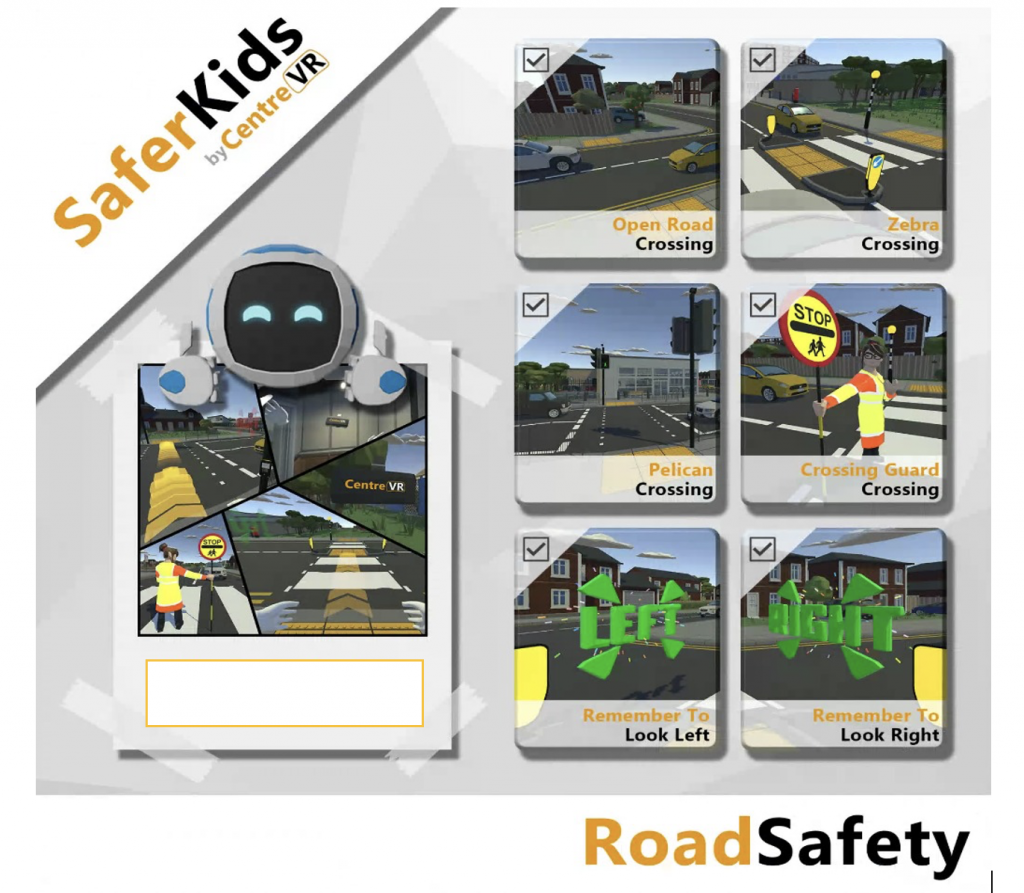Dr Carina E I Westling and Dr Hongchuan Yu write about Facebook’s recent announcement and what the ‘Metaverse’ will entail…
Facebook’s recent announcement about its new focus creates more questions than clarity. The new brand name suggests a desire for greater confluence which, in line with the legacy business model inherited from Facebook, means closer meshing with the totality of our personal and professional lives. How this will manifest is yet to be seen but the devil will be in the detail, as Meta will create both challenges and opportunities for innovation in design and policy. With close attention to emerging technologies and the policy frameworks that support their implementation, researchers and educators at the Faculty of Media and Communication at Bournemouth University are collaborating with industry advisors to make our new programmes BA Immersive Media and BSc Virtual and Augmented Reality crucibles for responsible creative development.
The ‘embodied internet’ is an oxymoron, but virtual (VR) and to some extent also augmented (AR) and mixed reality (XR), technologies seek to produce an approximation of physical experience. With 5G, many scenarios of real-time interaction based on cloud computing can be fulfilled. This offers new possibilities to the creative industries through VR/AR/XR technologies, ostensibly to realise the ‘metaverse’; the convergence of our physical and digital lives. However, you cannot accelerate connectivity without proportionate risks of exposure.
Effective storytelling will need to be ethical
Our research and teaching programmes are geared towards development of the human skills that drive excellent storytelling in and beyond games and experience design, and we are keenly aware of the changing policy landscape that is sure to follow in the wake of interactive VR/AR/XR. Since 2015-2016, the management of and risks associated with the type of personal data that is the bread and butter of all free-at-the-point-of-use, audience-facing digital platforms is a top priority, and the opening up of VR/AR/XR technologies to real-time interactivity will raise the stakes further.
Meta’s vision, or rather proposition for a technologically convergent interactive and social space is broad, meaning that audiences will comprise naïve users in everyday situations as well as seasoned users in professional situations, and every type of audience in between. At scale, services, social spaces and interactive storytelling designed for this virtual milieu will present new challenges to research and development, including known and ‘unknown unknown’ problems with data management and security. Delivery of complex interactive media environments with default open web connectivity will create a host of new attack surfaces for cybercriminals and digital mavericks. Public appetite for more exposure – particularly of children and vulnerable adult populations – to malign actors is about as great as their trust in the brand that Meta seeks to leave behind.

Broad adoption, sustainable development and effective storytelling in this domain will require that research, design and production are framed in a clear commitment to ethical principles and mitigation of risks to privacy and data security. Early publicity materials indicate their awareness of this, but Zuckerberg & co. still have to regain the trust of peers and public. That is not to say Meta is doomed to join Second Life – its reception in the industry press may have been on the chilly side, but the rebrand presents an opportunity to be more than a clean slate. We will need to see unflinching recognition of past errors and genuine steps taken to integrate data security with appropriate risk modelling and attention to scaling effects. But if Meta walks the walk, it may come to play a part in, and perhaps even lead the ‘coming of age’ of social media.
High stakes
As Meta, Facebook are planning to spend at least $10 billion on metaverse-related projects this year. Bloomberg Intelligence further predicts “The global metaverse revenue opportunity could approach $800 billion in 2024”. Whether we greet such developments with enthusiasm or trepidation, it is clear that social media will see a step change even if we cannot be certain of its nature.
Original VR technology was derived from computer graphics and relied on specialist hardware to deliver expert applications such as surgery training and planning, high-end games and flight simulators. In addition to 5G, recent advances in computer vision and machine learning (sometimes called AI) technologies applied to VR/AR/XR technologies may help realise their broad adoption, which is the Meta vision for a 3D, virtual, social space where you might share, in real time, experiences that aren’t feasible in the physical world.
Technology marketing has not always delivered on its promises but innovation has created real change, and content producers will need to be aware of developments in this domain. As Cathy Hackl says: “If the internet and social media changed your business or changed the way you interact with people, then you should be paying attention to what 3.0 and the metaverse will do, because it will change those things as well.” We might speculate about effects on how we tell stories and socialise remotely, but we will almost certainly see this type of platform used as a productivity tool, made more relevant by imperatives to reduce travel and carbon footprints.
As with most predictions, the actuality is likely to be more prosaic than any utopias or dystopias we conjure up, but probably not unimportant. In the past decade and a half, social media have become a critical concern with real-world impacts. It will be interesting to see if Meta can finally shed Facebook’s unfortunate association with FaceMash, Zuckerberg’s jockish student experiment. Growing up is overdue.
By Dr Carina E I Westling and Dr Hongchuan Yu, Bournemouth University
This piece was originally published on BU’s LinkedIn page
 This is Dr Roya Haratian participating in data collection to help develop AI which can read emotions from motion!
This is Dr Roya Haratian participating in data collection to help develop AI which can read emotions from motion!
















 Beyond Academia: Exploring Career Options for Early Career Researchers – Online Workshop
Beyond Academia: Exploring Career Options for Early Career Researchers – Online Workshop UKCGE Recognised Research Supervision Programme: Deadline Approaching
UKCGE Recognised Research Supervision Programme: Deadline Approaching SPROUT: From Sustainable Research to Sustainable Research Lives
SPROUT: From Sustainable Research to Sustainable Research Lives BRIAN upgrade and new look
BRIAN upgrade and new look Seeing the fruits of your labour in Bangladesh
Seeing the fruits of your labour in Bangladesh ECR Funding Open Call: Research Culture & Community Grant – Apply now
ECR Funding Open Call: Research Culture & Community Grant – Apply now ECR Funding Open Call: Research Culture & Community Grant – Application Deadline Friday 12 December
ECR Funding Open Call: Research Culture & Community Grant – Application Deadline Friday 12 December MSCA Postdoctoral Fellowships 2025 Call
MSCA Postdoctoral Fellowships 2025 Call ERC Advanced Grant 2025 Webinar
ERC Advanced Grant 2025 Webinar Update on UKRO services
Update on UKRO services European research project exploring use of ‘virtual twins’ to better manage metabolic associated fatty liver disease
European research project exploring use of ‘virtual twins’ to better manage metabolic associated fatty liver disease